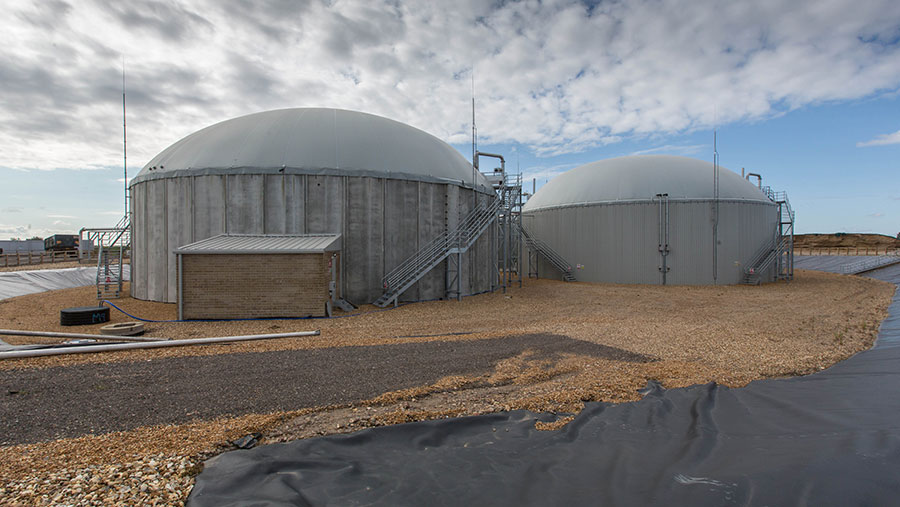New business opportunity for farms with excess heat or power
 © Tim Scrivener
© Tim Scrivener Farmers with anaerobic digester (AD) plants or who are running other enterprises that produce waste heat are being encouraged to divert resources into horticultural production.
A new project is seeking to identify sites in the region where excess heat and renewable power could be used to heat greenhouses and power vertical farms.
Farmers may be able to gain new income streams from the sale of the waste heat and renewable power to other growers, or could choose to develop horticultural projects in their own right.
See also: High prices create opportunity for renewable energy contracts
The project, funded by the Department for Business, Energy and Industrial Strategy (BEIS), is being run by a company called District Eating in conjunction with the Midlands Energy Hub.
It aims to map potential sites for low carbon horticulture across the Midlands Energy Hub area, which stretches from Norfolk to Herefordshire, to identify sites that could be used to develop new low carbon horticulture projects.
This would be either with farmers and waste heat producers looking to diversify, or to help existing growers expand onto new sites, creating an income for heat and power producers, and displacing high gas and power costs for growers.
It is estimated that every year greenhouses in the UK use 3.3TWh of heat – most of it generated by natural gas boilers and Combined Heat and Power (CHP) units.
However, this could be replaced by recoverable waste heat from UK industry, which is estimated to amount to 10-50TWh per year.
Faye Tomson, director of District Eating, said: “The biggest opportunities for farmers are likely to be with AD plants that produce heat, power and in some cases clean carbon dioxide from gas upgrade, and also with renewable power generation.
“This is because they are likely to be exporting power to the grid and may not be making as much money per KW/h for their exports as they could be making from selling into a greenhouse or vertical farm or by developing a horticulture project themselves.
“As part of this project we’d also like to hear from pig and poultry farmers to know how much heat they might have, whether it varies throughout the year and what it is costing them to waste that heat.
“We want to speak to these farmers to work out what the opportunities might be for using this heat in a useful manner.”
Register interest
Farmers producing waste heat or horticultural growers interested in using recovered heat are being invited to register their interest.
As part of other projects District Eating is working on, the company will also be mapping industrial companies with excess waste which could be utilised.
The most promising sites identified in mapping will be selected for micro-feasibility studies and further project development, funded by the Midlands Energy Hub.
